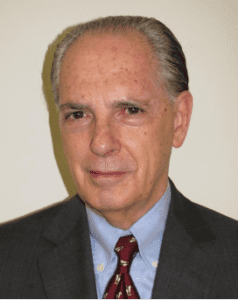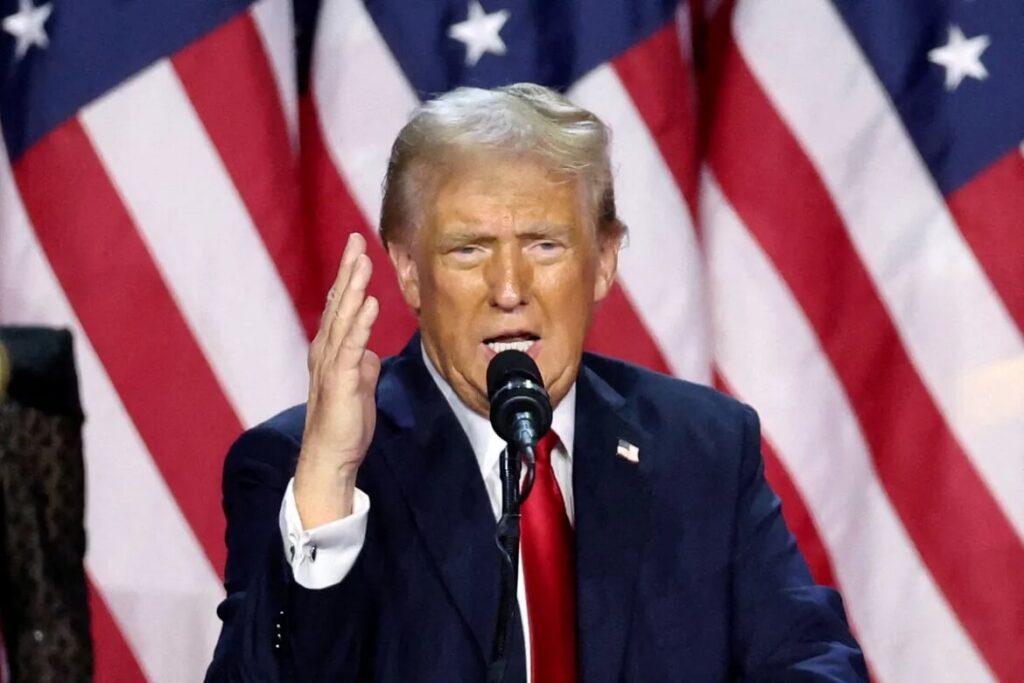President Trump seems to have lost all sense of limits. Is he unhinged? Does he believe that his comeback against all odds and his close call from the assassin’s bullets are tantamount to providential entitlement? Is this what happens when he is not surrounded by adults in the room? Whatever the answer, he seems utterly unrestrained. Booth domestically and internationally.
Domestically
Domestically, he is forcefully following the route of the so-called inherent or implied constitutional powers. Meaning, those not expressly conferred by the Constitution and where tradition or the acquiescence by the other two branches of public power (legislative and judicial) allow for their exercise. There is a lot of interpretative lack of clarity in this regard. It was during the successive terms in office of Theodore Roosevelt and William Howard Taft, at the beginning of the 20th century, when the interpretative gap regarding the scope of the presidential powers reached its peak.

Roosevelt believed that the President was entitled to do everything that the nation required, unless expressly and unequivocally prohibited by the Constitution and the laws. Conversely, Taft as a good jurist (who would later occupy the presidency of the Supreme Court), believed that the President could not exercise any power that was not specifically conferred on him by the Constitution or the laws. In the first case, the President could expand his action as far as he could. In the second, he should restrict himself as much as he must. (Fisher, 1985, pp. 18, 19).
Like the first of the two Roosevelts, Trump has a far-reaching understanding about the nature of the presidential powers. Unlike him, however, the current occupant of the White House is convinced that he can overtly challenge the Constitution and the laws themselves. Not only has he openly disregarded and nullified laws, but wants to change the constitutional understanding that babies born on U.S. soil, to undocumented parents, are citizens. In other words, through a convoluted interpretation of his powers, he is jumping into autocracy. This becomes the most extreme case, in American history, regarding the extension and nature of the inherent or implied constitutional powers.
Amid this awkward situation, the only barrier to the indiscriminate extension of presidential power is represented by the counterweight of Congress or the Supreme Court. Should they put a stop to Trump’s overreach, limits would be back in place. Their acquiescence to his actions, however, would legitimize his overreach. Moreover, there is the distinct possibility that his excesses could be expressly confirmed by the Supreme Court.
A submissive Republican party, that controls both the Senate and the House of Representatives, seems unwilling to put limits to his actions through the enactment of law or by challenging his interpretation of existing laws. The existing “trifecta” represents the perfect prescription for presidential overreach. Meanwhile, the Supreme Court has a majority of six conservative judges, three of whom were appointed by Trump himself.
This majority within the Supreme Court has embraced the so-called unitary executive doctrine, according to which the President has sole authority over the Executive Branch. In the words of Christopher Wright Durocher, this doctrine states that “the executive is headed by a single person, not a collegial body, and that single person is the ultimate policy maker” (Wright Durocher, 2025). Gone, as a result, is the Senate’s supervision. The President can do as he wishes. This was clearly exemplified by the Court’s decision that current and former presidents are largely immune from prosecution, if they use their official powers to commit crimes. That being the case, the Supreme Court may well support Trump’s assertion on the extensive nature of his powers. If so, America’s presidency could become an elected autocracy.
Internationally
Trump can choose to behave like a domestic autocrat, and the U.S.’ Supreme Court could even endorse it. But what about the rest of the world? Would America’s international standing and influence remain in place, if he behaves autocratically within the global scene? Hardly.
The multilateral institutions, systems of alliances and rules of the game created by the United States shortly after World War II, or in subsequent years, allowed for a global governance architecture. A rules based liberal international order emerged as a result. After the collapse of the Soviet Union, at the beginning of the 1990s, that order became global in nature and, by extension, America’s hegemony turned global as well. The United States had attained a stage where its supremacy was overwhelmingly accepted as both legitimate and bening.
Bush number two turned his country’s gigantic advantage upside down, by asserting the primacy of national security over international law and cooperative multilateralism. As a result, the U.S. drifted apart from numerous allies and friends, diminishing its credibility and international standing. Moreover, calling themselves “democratic imperialists”, Bush’s neoconservatives unshamely asserted the imperial nature of their country’s actions. The U.S., hence, traded an immensely influential hegemonic standing to become a weak imperial power. One, Incapable of clearly prevailing in two peripheral Middle Eastern wars.
Trump 2.0 seems ready to follow this failed imperial route. However, while neoconservatives circumscribed this route to limited Middle East’s scenarios, Trump aims at global reach. He wants the Panama Canal back. This, notwithstanding the fact that after negotiations that involved several American administrations, the canal was transferred to Panama by way of the Senate’s duly ratified 1977 Torrijos-Carter treaties. He has ramped up his threats to annex Groenland, potentially by force. This, although it belongs to a NATO partner, Denmark, thus pushing Europeans to stand together against what would constitute a violation of international law and of the 1975 Helsinki Accords. He wants to seize control of Gaza and permanently displace the entire Palestinian population, by use of force if necessary. This, even though the U.S. has no title whatsoever over that faraway land.
Not surprisingly, in his inaugural speech Trump made reference to expanding “our territory”, while praising the country’s foremost imperialist: William McKinley. Even if Trump doesn’t follow suit with the implementation of these proposals, the damage has been done. By exposing them formally as America’s aims, the country has presented itself as an international predator. As Greg Grandin wrote, Trump’s words are “legitimizing something that already exists: a new world order where aggression is expected”. (Grandin, 2025).
The above falls, according to Bret Stephens, under the so called “sovereigntist” doctrine, which he defines as follows: “ Sovereigntism means a country doing what it wants to do within only the limits of what it can do. It means the end of self-restraint within a framework of mutual restraint (…) It means a reversion to the notorious claim, uttered (according to Thucydides) by the Athenians before their sacking of the neutral city of Melos, that ‘the strong do what they can and the weak suffer what they must’”. (Stephens, 2025).
Whereas “sovereigntism”, or pure and simple old fashion imperialism, the result would be the same: Grabbing territories from weaker countries or populations, without any entitlement for it. So, in the same manner in which domestically Trump grabs power and expands his reach with the only limit of what he can get with, internationally he also pushes the boundaries of what’s possible to the extreme. Unrestrained by law, be it domestic or international, Trump follows to the letter the Melian Dialogue logic: “The strong do what they can and the weak suffer what they must”.
Both domestically and internationally
In the end, both domestically and internationally, all translates into chaos. In the home front, institutions are besieged, destructured, preyed upon and decimated. On the international front, America’s trustworthiness is utterly destroyed. When the U.S. and Russia can both be equated as international predators, something has gotten terribly wrong. Russia, though, doesn’t go around slapping tariffs and uttering threats to friends and foes alike. Nor does it send back its illegal migrants in shackles to their home countries.
Within the U.S., it will take time to reconstruct institutions and structures, once the current absurdity becomes a bygone story. Internationally, it will be much more difficult to bring back America’s prestige and credibility. After Bush’s excesses (which pale in comparison to Trump’s), a second chance was possible. The main reason for it being that the U.S. was still the sole superpower. Those times have gone, though. With China and the U.S. confronting each other within a global power contest, Washington’s weaknesses become Beijing’s strengths. The U.S., indeed, is serving strengths to China on a silver plate.
As Yun Sun wrote: “Yet Chinese leaders (…) anticipate that if Trump follows through on his declared policies, such as those on trade and territorial expansion, he could do severe damage to the United States’ credibility and global leadership. Beijing thus sees Trump’s second term as a potential opportunity for China to expand its influence farther and faster (…) Beijing assumes that Washington’s own policies will dismantle the foundations of U.S. global hegemony”. (Yun, 2025)
References:
Fisher, Louis (1985). Constitutional Conflicts Between Congress and the President. Princeton: Princeton University Press.
Grandin Greg (2025). “Trump Dreams About a New American Empire”, The New York Times, January 21.
Stephens, Bret (2025). “Is this the End of Pax Americana?”, The New York Times, February 4.
Wright Durocher, Christopher (2025). “A Unitary Executive on Steroids Threatens to Crush the Constitution”, American Constitutional Society, February 4.
Yun, Sun (2025). “China’s Trump Strategy: Beijing is Preparing to Take Advantage of Disruption”, Foreign Affairs, February 6.
Author: Alfredo Toro Hardy, PhD – Retired Venezuelan career diplomat, scholar and author. Former Ambassador to the U.S., U.K., Spain, Brazil, Ireland, Chile and Singapore. Author or co-author of thirty-six books on international affairs. Former Fulbright Scholar and Visiting Professor at Princeton and Brasilia universities. He is an Honorary Fellow of the Geneva School of Diplomacy and International Relations and a member of the Review Panel of the Rockefeller Foundation Bellagio Center.
(The views expressed in this article belong only to the author and do not necessarily reflect the views of World Geostrategic Insights).







